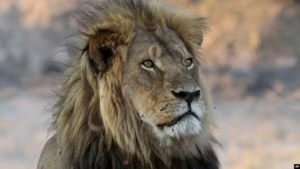South Africa takes over G20 leadership from Brazil

Cyril Ramaphosa raises his right hand as he takes the oath of office at his inauguration as South African President, at Loftus Versfeld stadium in Pretoria, on May 25, 2019. (Photo by Yeshiel PANCHIA / POOL / AFP)
South Africa has assumed the presidency of the G20, becoming the first African nation to lead the influential bloc of the world’s largest economies.
The handover ceremony took place on Tuesday during the G20 summit in Rio de Janeiro, Brazil.
Brazilian President Luiz Inácio Lula da Silva officially transferred leadership to South African President Cyril Ramaphosa, who pledged to prioritise Africa’s development and the Global South’s interests during his tenure.
Also Read: ECOWAS, ACSS forge academic partnership to address regional conflicts
“We will use this moment to bring the development priorities of the African continent and the Global South more firmly onto the agenda of the G20,” Ramaphosa said.
Ramaphosa highlighted three key areas of focus for South Africa’s presidency: promoting inclusive economic growth, addressing food security, and leveraging artificial intelligence and innovation for sustainable development.
He pledged to work towards greater global economic growth while ensuring no one is left behind.
However, the African Union joined the forum as a member in 2023, reflecting growing global recognition of Africa’s role in shaping international policy.
The G20 consists of 19 countries and the European Union, with permanent guest status granted to Spain.
Member nations include major economies such as the United States, China, Germany, and India.
As the first African country to lead the G20, South Africa aims to champion issues of industrialization, employment, and reducing inequality, along with driving discussions on critical global issues.
“As South Africa, we undertake to advance the work of the G20 towards achieving greater global economic growth and sustainable development. We will work to ensure that no one is left behind,” Ramaphosa concluded.








